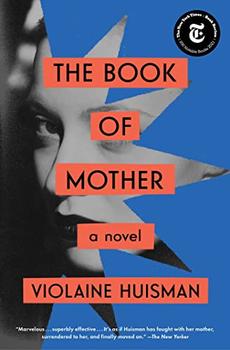Summary | Excerpt | Reviews | Beyond the book | Read-Alikes | Genres & Themes | Author Bio

A Novel
by Violaine HuismanA gorgeous, critically acclaimed debut novel about a young woman coming of age with a dazzling yet damaged mother who lived and loved in extremes.
A prizewinning tour de force when it was published in France, Violaine Huisman's remarkable debut novel is about a daughter's inextinguishable love for her magnetic, mercurial mother. Beautiful and charismatic, Catherine, a.k.a. "Maman," smokes too much, drives too fast, laughs too hard, and loves too extravagantly. During a joyful and chaotic childhood in Paris, her daughter Violaine wouldn't have it any other way.
But when Maman is hospitalized after a third divorce and a breakdown, everything changes. Even as Violaine and her sister long for their mother's return, once she's back Maman's violent mood swings and flagrant disregard for personal boundaries soon turn their home into an emotional landmine. As the story of Catherine's own traumatic childhood and adolescence unfolds, the pieces come together to form an indelible portrait of a mother as irresistible as she is impossible, as triumphant as she is transgressive.
With spectacular ferocity of language, a streak of dark humor, and stunning emotional bravery, The Book of Mother is an exquisitely wrought story of a mother's dizzying heights and devastating lows, and a daughter who must hold her memory close in order to let go.
Huisman's prose is very strong, her poetic flair remaining intact thanks to Leslie Camhi's skillful translation from the original French. At once a purge of years' worth of pain and a celebration of a life lived at the extremes, her blend of fact and fiction feels like the ideal narrative style to immortalize a woman whose bittersweet story consistently blurred the lines between sorrow and joy, heartache and passion, savagery and love...continued
Full Review
(489 words)
This review is available to non-members for a limited time. For full access,
become a member today.
(Reviewed by Callum McLaughlin).
 As a concept, autofiction can seem like an oxymoron. Short for autobiographical fiction, the term was coined in the 1970s by French writer Serge Dubrovsky, and it quickly became something of a buzzword in the publishing world. This blend of two seemingly disparate forms is best described as a fictionalized account of real-life events, heavily influenced by the author's own experiences.
As a concept, autofiction can seem like an oxymoron. Short for autobiographical fiction, the term was coined in the 1970s by French writer Serge Dubrovsky, and it quickly became something of a buzzword in the publishing world. This blend of two seemingly disparate forms is best described as a fictionalized account of real-life events, heavily influenced by the author's own experiences.
While most of us are familiar with the notion of "writing about what you know," it may seem strange to some readers that an author would choose to frame their own life story as fiction, rather than simply pen a more recognizable memoir. Some have suggested that autofiction exists on a spectrum, from the heavily fictionalized to almost entirely true. This ...
This "beyond the book" feature is available to non-members for a limited time. Join today for full access.

If you liked The Book of Mother, try these:

by Edouard Louis
Published 2025
An autobiographical novel from Édouard Louis, hailed as one of the most important voices of his generation—about social class, transformation, and the perils of leaving the past behind.

by Andre Aciman
Published 2024
The author of Call Me by Your Name returns with a deeply romantic memoir of his time in Rome while on the cusp of adulthood.
If every country had to write a book about elephants...
Click Here to find out who said this, as well as discovering other famous literary quotes!